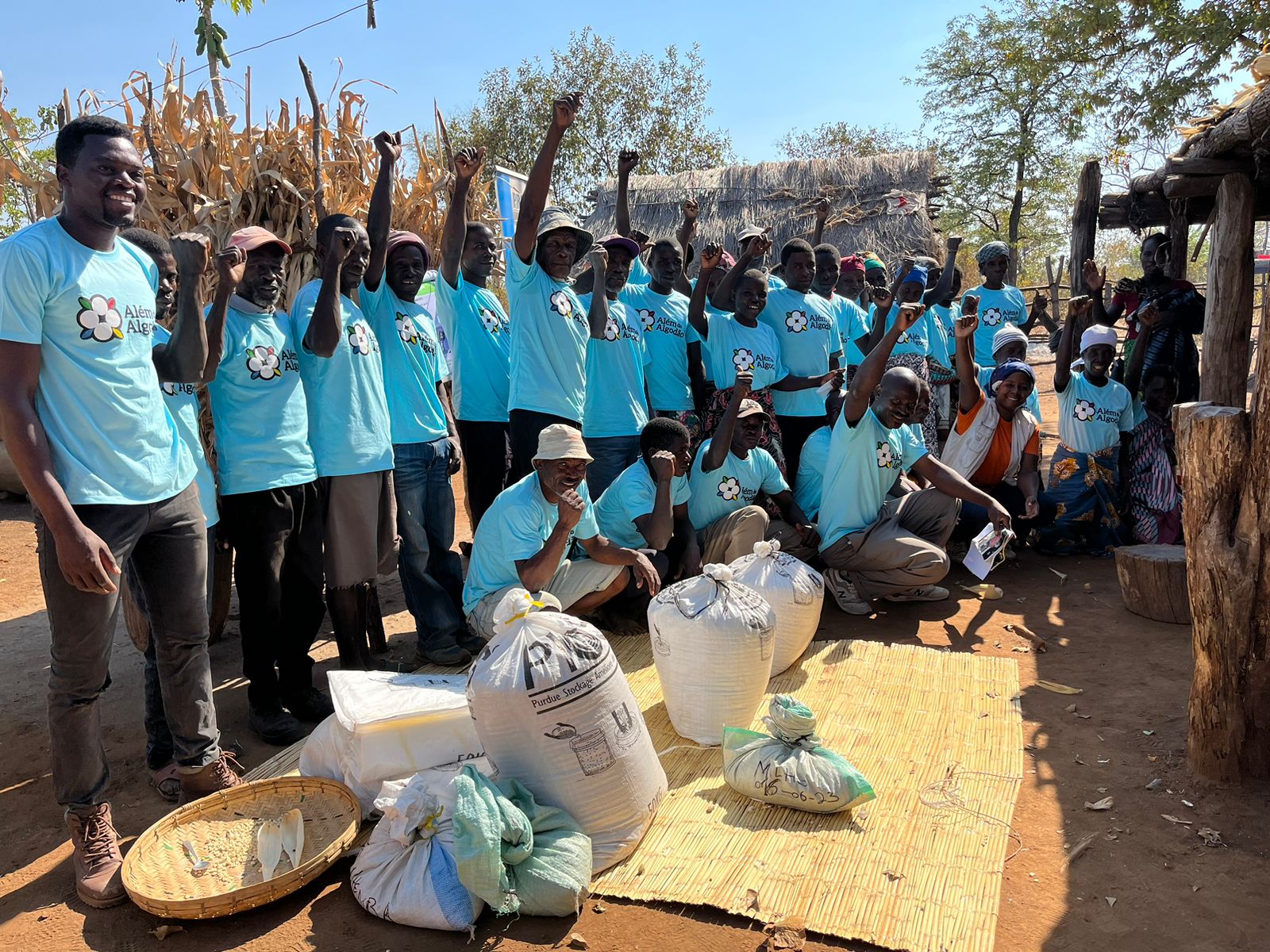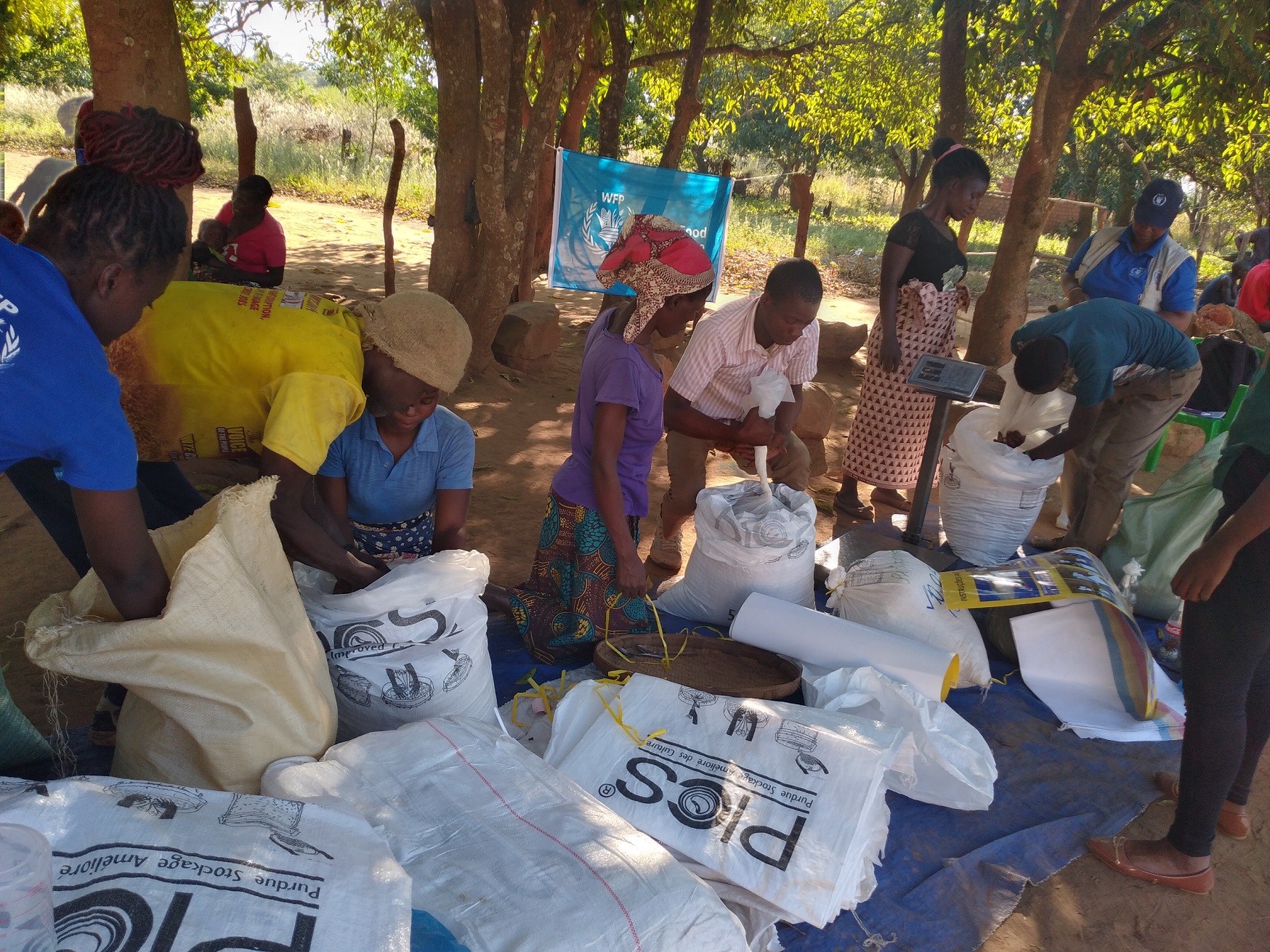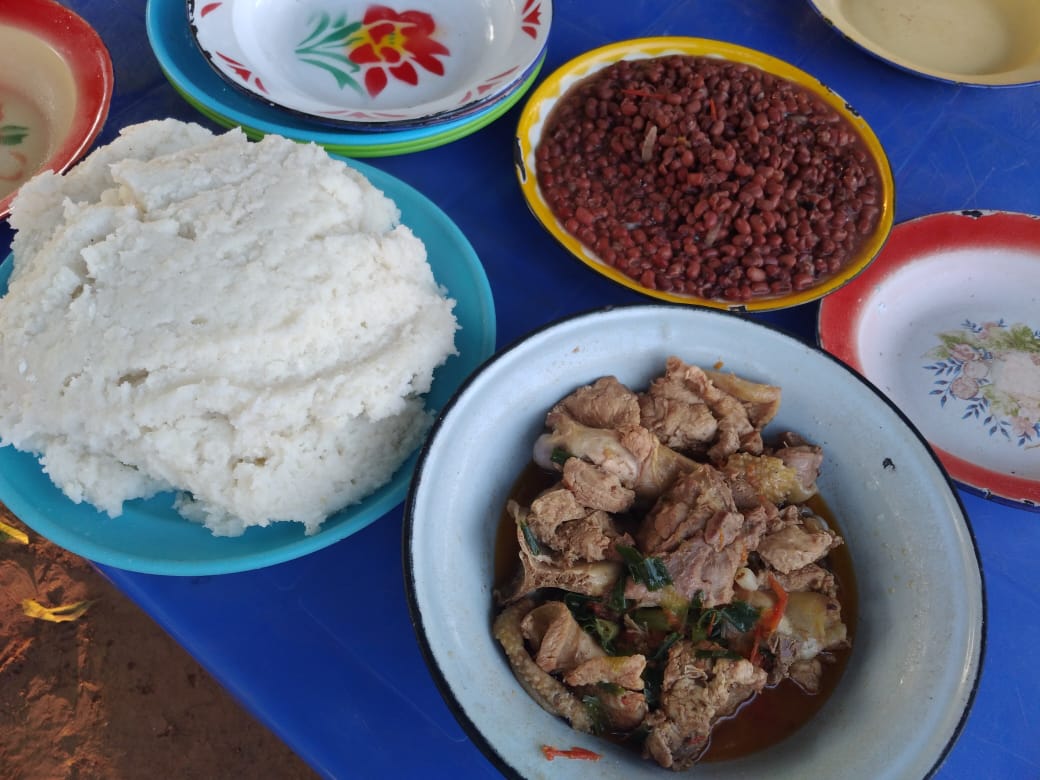 Over the past week, between June 12 and 16, training activities on post-harvest loss management took place for producers in Mozambique. The objective of the training was to improve the knowledge and skills of the producers benefiting from the project in managing post-harvest losses and also demonstrate good practices in the process of harvesting, transporting, drying and threshing their production.
Over the past week, between June 12 and 16, training activities on post-harvest loss management took place for producers in Mozambique. The objective of the training was to improve the knowledge and skills of the producers benefiting from the project in managing post-harvest losses and also demonstrate good practices in the process of harvesting, transporting, drying and threshing their production.
In total, 250 producers were trained in Tete and Manica provinces, with 50 farmers in Magoe district (38 women), 42 from Cahora-Bassa (18 women), 46 from Barue (21 women), 41 from Guro (24 women) and 36 from Moatize (4 women). White maize, beans and sorghum were the grains used during the training.
The work was carried out by the coordinator of the Beyond Cotton project in the country, Marisete Araújo, the agronomist Elvira Rendição, the technical team of the World Food Programme (WFP) in Mozambique and was supported by technicians from the Manica Polytechnic Institute (ISPM, in Portuguese).
The techniques for reducing post-harvest losses are fundamental to reduce food waste and maintain the properties and quality of food. The process consists in removing impurities and checking the humidity of the grains and storage. The storage is done in hermetic bags, material that reduces the entry of air and other substances that can harm the conservation of grains.
Training is also an important activity for the work and nutrition of producers. The coordinator of the project in Mozambique, Marisete Araújo, points out that this technique enables harvested grains to be planted at another opportune agricultural moment, due to the retention of the germination power of crops, when storage is done properly.

“This way, the grains can be marketed in times of scarcity, thus contributing to the income of producers and, in addition, the use of airtight bags will be able to store food for longer, thus favouring food and nutritional security,” says Marisete.
Farmers who took part in the action said they were happy to have been introduced to the packaging and to have received three airtight bags per producer for replication. At the end of the activity, farmers served meals with grains harvested from the result demonstration fields, such as xima, a Mozambican dish based on white maize flour.
The Beyond Cotton Project is a partnership between the World Food Programme (WFP) Centre of Excellence against Hunger and the Brazilian Cooperation Agency (ABC) and is financed by the Brazilian Cotton Institute. Learn more.





